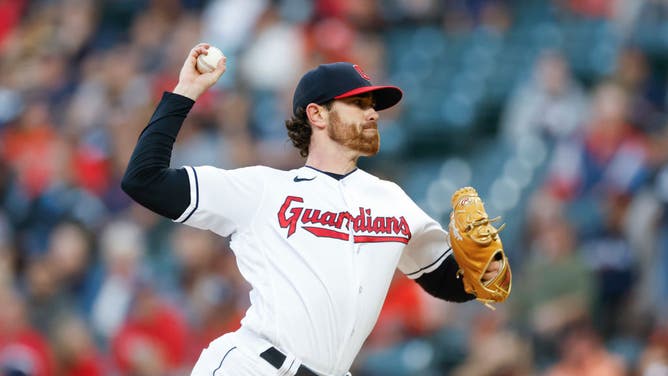MLBPA Blames Pitch Clock For Increase In Pitcher Injuries, MLB Says ‘No Evidence’ That's True
It was a bad weekend to be a Major League Baseball pitcher. Cleveland Guardians ace Shane Bieber and New York Yankees reliever Jonathan Loáisiga were both announced as needing Tommy John surgery. Atlanta Braves star Spencer Strider, too, hit the Injured List on Sunday with a damaged UCL.
In the wake of all these pitcher injuries, MLB Players Association chief Tony Clark issued a statement blaming the pitch clock.
"Despite unanimous player opposition and significant concerns regarding health and safety, the Commissioner's Office reduced the length of the pitch clock last December just one season removed from imposing the most significant rule change in decades," the statement reads.
"Since then, our concerns about the health impacts of reduced recovery time have only intensified. The league's unwillingness thus far to acknowledge or study the effects of these profound changes is an unprecedented threat to our game and its most valuable asset — the players."
MLB instituted a pitch clock for the 2023 season set at 15 seconds with no runners on base and 20 seconds with a base runner. This past offseason, the 11-man competition committee voted to cut the clock to 18 seconds with base runners, which was opposed by the four players in the group.

(Photo by Ron Schwane/Getty Images)
In response, MLB quickly released its own statement pushing back against the MLBPA's accusations.
"This statement ignores the empirical evidence and much more significant long-term trend, over multiple decades, of velocity and spin increases that are highly correlated with arm injuries," MLB’s statement read.
"Nobody wants to see pitchers get hurt in this game, which is why MLB is currently undergoing a significant comprehensive research study into the causes of this long-term increase, interviewing prominent medical experts across baseball, which to date has been consistent with an independent analysis by Johns Hopkins University that found no evidence to support that the introduction of the pitch clock has increased injuries.
"In fact, JHU found no evidence that pitchers who worked quickly in 2023 were more likely to sustain an injury than those who worked less quickly on average. JHU also found no evidence that pitchers who sped up their pace were more likely to sustain an injury than those who did not."
Why So Many Elbow Injuries?
So the Players Association claims it's the pitch clock. The league claims it's because pitchers are throwing too hard.
In reality, it's probably a little bit of both. So when reporters asked Bieber about the increase in pitcher injuries, he was hesitant to pinpoint just one culprit.
"Obviously, the conversations are happening," Bieber said. "They're continuing to grow louder, and they're happening quite a bit more often. So, we'll see what's to come of it.
"For me, I'm not ready to say what it is. I guarantee it's a combination of a number of factors. And also, all of that on top of logging a lot of innings from now all the way back into college and high school."
It's a problem MLB won't be able to ignore for long. Since 2008, the number of MLB players needing Tommy John surgery is up 100%. And according to CBS Sports' senior research editor Doug Clawson, eight of the top 10 starting pitchers since 2021 as judged by ERA (min. 40 starts) are currently on the IL or on rehab assignment.
According to a report from The Athletic, the league hopes to form a task force that can provide recommendations to teams. And orthopedic surgeon Dr. Keith Meister gave the outlet his take on the influx of pitching arm injuries.
"What I've talked to MLB about is, look, we have all this data on performance. We also have all this data on health. We have to marry these two metrics," Meister said. "I'm not going to sit here and tell you to never throw a sweeper or never throw a hard changeup. But at some point, you have to say, 'OK, when we see a pitcher throwing that pitch more than 15% of the time, the likelihood of him having an injury to his shoulder or elbow goes (up), whatever, tenfold."
Don't take too much time gathering data, though. We might not have any pitchers left.